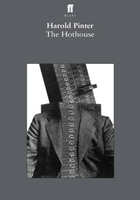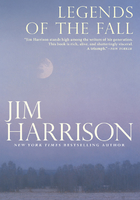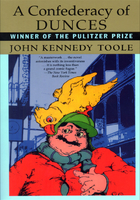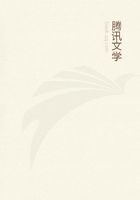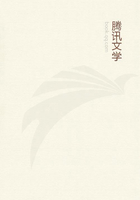Close Quarters and its companion novels in William Golding's Sea Trilogy are an account of cessation, of an ancient way of life drifting towards its conclusion. Once there is a rumour about steam. It is no more than a puff of the future. But otherwise this continuation of Rites of Passage shows sail making its way to its final harbour. The route is bitter and degraded. Seaweed, the lowest of all voyage hindrances, has wrapped itself round this Australia-bound vessel and made it impossible to get going. Weed has become its halter, a mean plant which is able to deny both current and weather. And never in a sea novel were there such accounts of sea sickness and sea suffering altogether. This is what it must have been like, below the glory of the full rigging, that canvas version of the clouds.
In Close Quarters, Golding's fascinating ability to write in Nelson's tongue is wonderfully sustained. Never pastiche, he uses this old sea talk as if he was born to it. Should his own twentieth-century language or thought have crept into it, his story, to use an apt line, would have sunk. But Close Quarters never strays from its early nineteenth-century telling. His easy familiarity with Georgian seamanship, and his strange ability both to think and write in a Nelsonian language, is sustained all through. And, like its predecessor, Close Quarters carries the very air of its time into the present. One thinks now and then of Joseph Conrad, maybe, or James Hanley, and even of Robert Louis Stevenson.
Golding dubs the sea-talk which he invents 'Tarpaulin'. All aboard speak Tarpaulin. It is partly a language which he himself might have picked up as a naval officer or used when sailing his small yacht off the Hampshire coast. It would have been the language Jane Austen's brother Frank would have spoken. The son and brother of Church of England clergymen, he was known as the 'officer who knelt in church', a description which provides an interesting slant on Captain Anderson's hatred of the clergy.
The passenger list for Sydney Cove is rather like a large family with even larger secrets. Its historian is young Edmund Talbot, gentleman, who hopes to be apprenticed to the Australian Governor – a contact of his distinguished godfather – before representing a rotten borough back home. Edmund of course is writing a journal of his trip to Sydney. By chance, he looks the part of an heroic youth, since he has accidentally – being tall, an unusual thing then – hit his head on a beam. His noble, wounded head is bandaged and there are ladies (and women) present to pet him. Although the scandal of Parson Colley's death in Rites of Passage might have deterred a young man less sure of himself from sleeping in the dead Colley's 'hutch' (cabin), Edmund occupies it, secure in the knowledge of his own innocence. But the beauty of a French officer, threatening in its effect on Edmund's love, Marion, can hold his attention. Edmund's landfall is to be the House of Commons. However, the reader is denied knowledge of where anyone else aboard might end up.
Amongst the sea's commands in this novel is that Edmund, the classic figure of a courageous aristocrat, is to be a writer and possibly even a great one. Not that he will know it at this stage of his life, but the reader does. In fact everyone aboard is in some state of transition and eventually of transformation. Yet so bound up are they in the war against the French that when another sailing ship appears on the horizon, it is all enthusiastic hands to the guns, and a lust for a patriotic blood letting. However, the ship is His Majesty's frigate Alcyone. And with deflating news. Napoleon is imprisoned on Elba. It is all over – the fight to rule the waves.
A ball must be held, even at sea. The two ships are roped together and a 'street' is laid between them. Finery is pulled out of the baggage in the ship's hold. Fiddles start up. It is a kind of faux Jane Austen dance on the ocean. Everything is carefully out of date as it is throughout the novel, the enjoyment, the politics, the manners, even the hopes, although never the ambitions. These last of course will have to be adjusted because of the peace. Golding shows himself as a master of transition, setting an ephemeral, shimmering scene, one Edmund will remember as almost a mirage. Only occasionally does he point to the future. For, as with the motley passengers cooped up on Alcyone, the reader is rarely allowed a sea view without a sail.
Golding also keeps to the length of time it took – in that age – to hear the news. The laggard scale of it dominates the story and is accurate to the dragged-out minute, sustained throughout. It is what gives the story its curious historic authenticity, this and the astonishing nautical technology of which he is a master. His slowing down of time is nothing less than a literary marvel. In some strange way he has found the pace of the late Georgian year. The reader will think of Coleridge's painted ship upon a painted ocean. Golding never mentions the commonplace of listing lost ships. Huge numbers set out, never to be seen again. Everyone on the two ships would have been familiar with the possibility. Going to Australia might have been an act of desperation but it was also an act of courage. The discomfort alone and its management is a powerful element of the novel.
In such discomfort, young Edmund makes intolerable – landlubber – demands on his servant Wheeler, asking for a clean shirt, hot food and immediate obedience. 'Say "sir" when you speak to me!' He doesn't realize that he is driving the poor, sensible man to his death. Golding explores the world of the order givers and the order takers as the sea drowns their differences, but he scrupulously avoids any analysis of social behaviour other than what existed at that moment. It is arguably his greatest gift as an historical novelist – to breathe the same air as his characters. To know no more than they knew. And so to feel what they felt.
Knowing how a ship works, and how some commands cannot be obeyed, for hot water at the drop of a hat for example, Wheeler answers back. Wheeler's man-to-master straight talk is almost as uncomfortable for the reader as it was to the gentleman who was forced to reply to it. Golding lets the sea imprison some and liberate others. It heaves all human pretensions into its depths and such superficially civilized attainments as man and master are washed away. Wheeler the servant isn't bolshie, only intelligent. Ordering him to bring hot water indeed! How? The crew itself cowers and slaves in the background, or hangs aloft like angels. And all the time the water churns away, rising and falling endlessly. Weeks and weeks of this until Sydney. And then what? The reader isn't told in volume two.
Close Quarters ends with the delaying weed left far behind and a suicide. The passengers and crew should by now have begun to free themselves from the limpet-like social accretions which held them back but still they are wary of a life without them. Sink or swim, they flounder in a moral morass. Golding allows Edmund an admission. 'Honesty compels me to promise a plain narrative at some later date which will see the voyage ended.' We understand that he has returned to England from Sydney Cove. And as a helplessly good writer?

